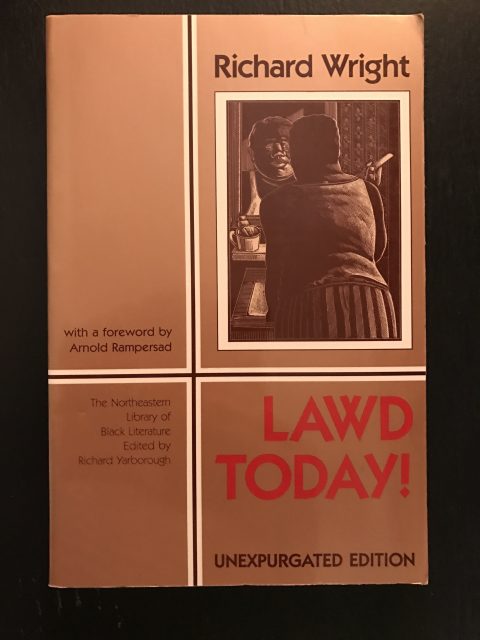This content is being reviewed in light of recent changes to federal guidance.
Lincoln’s Birthday
Categories: Guest Blogger, HBW
Abraham Lincoln, 16th President of the United States, celebrated his 208th birthday on February 12, 2017. He did not fail to inform everyone that he was of the party of Donald John Trump. In the first half of the 20th century, a number of Negroes and their non-Negro allies esteemed Lincoln as the Great Emancipator. They possessed fewer facts about Lincoln’s dream that the enslaved should be freed and exported in a reverse Middle Passage back to their motherlands than their African American and multi-ethnic descendants now have. Richard Wright used Lincoln’s birthday and iconic status to contextualize the behavior of Jake Jackson, the anti-hero of the novel Lawd Today! At crucial points throughout Wright’s satiric portrayal of Jackson, a radio station broadcasts platitudes about Lincoln’s greatness.

Lawd Today! (1963)
Readers can’t ignore the distance Wright established between Lincoln’s mythological greatness and Jackson’s wretchedness as a classic stereotype of the urbanized Negro male. Lincoln and Jackson are at the opposite extreme ends of a line drawn through the American Dream. In 2017, Trump and his tribe are alternative surrogates of Lincoln; American citizens who castigate Trump, whether they look like Jackson or not, are commodities in the political supermarket. Eight decades after the draft of Lawd Today! was completed in 1935, we still grapple with the disconnection between American political leaders and the constituents whom they hesitate to serve, the disjointedness of ideologies as myths.
It is reasonable to add Lawd Today! to the growing list of fictional works we can use in mapping the ideological foundations of the American Dream’s rapid transformation into an American Nightmare, an alleged prerequisite for making America great again. Just as Brave New World, 1984, and Animal Farm serve as fictional strops for honing vision, Lawd Today! can be a tool for sharpening awareness of why our democratic, racialized and gendered social contract authorized the ascent of a Trump. Wright’s novel offers us an excellent portrait of what, to use Albert Murray’s term, an uncritical omni-American can be and fail to do.